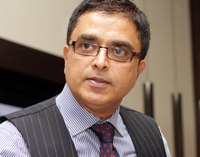 An increasing number of companies in the UAE are pulling all stops to identify and recruit the next generation of market-savvy leaders, both from the region and abroad, as they aggressively target large-scale business growth in preparation for Expo 2020.
An increasing number of companies in the UAE are pulling all stops to identify and recruit the next generation of market-savvy leaders, both from the region and abroad, as they aggressively target large-scale business growth in preparation for Expo 2020.
A top official of Thought Leaders Middle East, one of the leading global retail and supply chain experts, warned that a talent shortage across most operational sectors is leading companies to aggressively poach the best talent from their competitors while ensuring that they retain their existing top achievers.
“With Expo 2020 only six years away, retailers must plan well in advance to meet the fast-shrinking talent pool if they have to keep ahead of their competition,” says Prakash Menon, Executive Director of Thought Leaders Middle East. “In the months to come, we are going to witness a fierce war for talent among business groups and companies to retain not only their best employees but also recruit the leading achievers from among the competition’s ranks.”
Menon was speaking today at the Dubai launch of the “Retail Mastery” Program, a special curriculum designed by Thought Leaders Global to identify and encourage the next generation of retail leaders to deliver outstanding profitability. Conducted in manageable blocks of two days per month over a three-month period, the program is specifically targeted towards the middle and senior management within a retail organisation, retail professionals and consultants.
Menon added that Dubai’s winning the bid to host Expo 2020 was proving to be a major catalyst for development across all industry segments, sparking a flurry of major development announcements involving new shopping centres, hotels and tourist facilities to accommodate an estimated 25 million visitors. According to Oxford Economics estimates, Expo 2020 will create more than 277,000 job opportunities in the UAE between 2013 and 2021.
“The 21st century workplace environment is more fast-paced, competitive and unpredictable than ever before. What seemed unthinkable yesterday is either commonplace or on the verge of being introduced today,” he said.
The “War For Talent” term was coined in the late Nineties following the publication of a McKinsey & Co report that urged businesses to review their employee strategies to recruit, retain and develop top achievers. Menon added that companies in the GCC will seriously need to re-look and reinvent their training and recruitment policies if they have to survive the competition.
“Most successful businesses are looking for born leaders from the competition or to rise from their own ranks to take care of the business,” he observed. “This is because it is one thing to develop some of the best goods and services, and another to have the right people to aggressively market them to the customers. Businesses therefore need to prioritise strategies that recruit and retain the right talent.”
Speaking about employee retention, Menon added that most employees leave their present jobs not only for better opportunities with other companies but also because they find they are not learning anything new in their existing jobs.
“By giving employees greater control of responsibilities and investing in continuous training programs, regular promotions and incentives, companies can ensure that their staff remain satisfied with their personal growth and do not need to explore opportunities with the competition,” he said.

